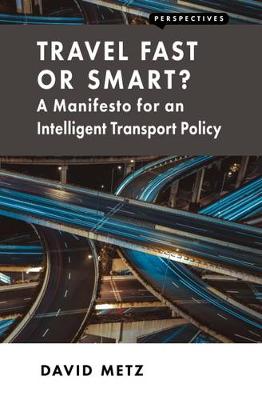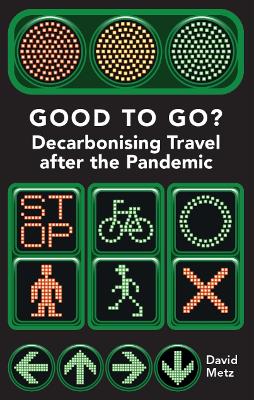Perspectives
2 total works
Britain does not have a coherent transport policy, and conventional transport economics has reached a dead end. A transport policy should incorporate systematic thinking about the travel needs of society. However, in Britain, public investment in the transport system has been extraordinarily volatile. We closed under-used railways and then experienced a doubling of passenger numbers that has prompted huge new investment. We gave up making substantial investment in motorways, but now have chosen to revive the road construction effort in a big way. We vacillate on road pricing, introducing congestion charging successfully in London, but backing off because of local opposition elsewhere. We have delayed for decades the decision about whether and where to build additional airport capacity. The environmental impacts of transport infrastructure - global and local - have been a key focus, but now are not. This mess has come about because policy has focused on big construction projects and time-saving, instead of on the part people and places play in economic development. This book sets out the principles that could underpin a strategic policy for transport.
Instead of focusing piecemeal on trying (and failing) to get from place to place ever faster, we need to think about how and where we want the economy to develop, and about how new the digital technologies can help achieve this.
Instead of focusing piecemeal on trying (and failing) to get from place to place ever faster, we need to think about how and where we want the economy to develop, and about how new the digital technologies can help achieve this.
Travel is central to our lives, and the transport system brings us the goods and services that we need and allows us to access the experiences and opportunities that we seek. Yet our transport system has many problems: congestion and overcrowding, noise, air pollution and carbon emissions, deaths and injuries, and the intrusion of vehicles into unsuitable locations. Much effort and money has been devoted to tackling these problems, over many years, but progress is slow.
Recognition of the urgent need to respond to climate change is prompting major transport developments – particularly a switch to electric vehicles – and it is also argued that the amount of travel we undertake will need to be reduced. The coronavirus pandemic caused a great shock to our travel patterns, showing us that we could manage with much less movement if we had to. But as the pandemic recedes, our travel behaviour is largely reverting to what it was before, albeit with less commuting to work and less shopping in person.
This book offers a comprehensive overview of the transport system. It looks at how it has developed, at how it will need to evolve to meet our need for travel – sustainably and economically – and at what our options are for meeting those needs.
Recognition of the urgent need to respond to climate change is prompting major transport developments – particularly a switch to electric vehicles – and it is also argued that the amount of travel we undertake will need to be reduced. The coronavirus pandemic caused a great shock to our travel patterns, showing us that we could manage with much less movement if we had to. But as the pandemic recedes, our travel behaviour is largely reverting to what it was before, albeit with less commuting to work and less shopping in person.
This book offers a comprehensive overview of the transport system. It looks at how it has developed, at how it will need to evolve to meet our need for travel – sustainably and economically – and at what our options are for meeting those needs.

